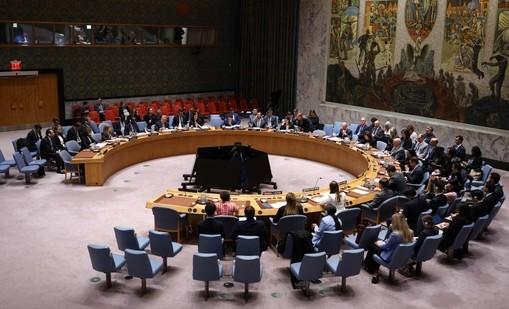
Was LeT involved? UNSC asks Pak on J&K attack, refuses to accept ‘false flag’ claim
In a significant development, the United Nations Security Council (UNSC) members have rejected Pakistan’s “false flag” narrative on the recent attack in Pahalgam, Kashmir, and instead, have asked if the terror outfit Lashkar-e-Taiba (LeT) was likely involved in the attack. The UNSC members made these remarks during a closed-door meeting that was requested by Pakistan.
The meeting was held in response to the deadly attack on a tourist bus in Pahalgam, which left several people dead and injured. Pakistan had claimed that the attack was a “false flag” operation, blaming India for the incident. However, the UNSC members refused to accept this narrative and instead, questioned whether the LeT, a terror outfit based in Pakistan, was involved in the attack.
The UNSC members also reportedly brought up the targeting of tourists on the basis of religion, which has been a concern in the region. The attack on the tourist bus in Pahalgam was widely condemned by the international community, with many calling for an end to violence and terrorism in the region.
Pakistan’s “false flag” narrative has been widely disputed by experts and officials, who have pointed out that the attack was carried out by terrorists affiliated with LeT. The LeT is a Pakistan-based terror outfit that has been responsible for numerous attacks in India and the region.
The UNSC’s refusal to accept Pakistan’s “false flag” narrative is a significant development, as it highlights the international community’s skepticism towards Pakistan’s claims. It also underscores the need for Pakistan to take concrete action against terror outfits like LeT, which have been responsible for numerous attacks in the region.
The attack on the tourist bus in Pahalgam was a devastating incident that left several people dead and injured. The incident has sparked widespread outrage and condemnation, with many calling for an end to violence and terrorism in the region.
The UNSC’s decision to question Pakistan’s “false flag” narrative and seek answers on LeT’s involvement is a significant development that highlights the international community’s commitment to combating terrorism. It also underscores the need for Pakistan to take concrete action against terror outfits like LeT, which have been responsible for numerous attacks in the region.
In recent years, Pakistan has faced growing international pressure to take action against terror outfits like LeT, which have been responsible for numerous attacks in India and the region. The LeT is a Pakistan-based terror outfit that has been responsible for numerous attacks in India, including the 2008 Mumbai attacks, which killed over 160 people.
The UNSC’s decision to question Pakistan’s “false flag” narrative and seek answers on LeT’s involvement is a significant development that highlights the international community’s commitment to combating terrorism. It also underscores the need for Pakistan to take concrete action against terror outfits like LeT, which have been responsible for numerous attacks in the region.
In conclusion, the UNSC’s refusal to accept Pakistan’s “false flag” narrative on the Pahalgam attack and its questioning of LeT’s involvement is a significant development that highlights the international community’s skepticism towards Pakistan’s claims. It also underscores the need for Pakistan to take concrete action against terror outfits like LeT, which have been responsible for numerous attacks in the region.



